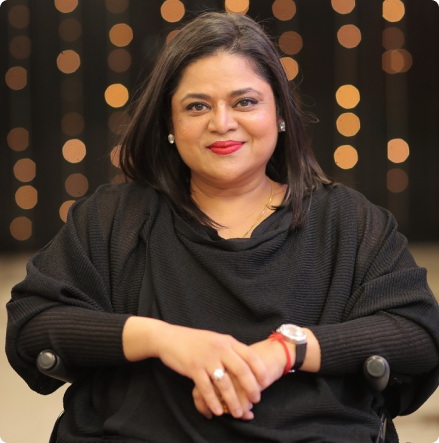New Delhi, November 05, 2025 : The National Summit on Accessibility 2025 organised by Svayam in partnership with the Confederation of Indian Industry (CII) and UNESCO, set the tone for India’s next phase of inclusive growth. Held at Taj Palace, New Delhi, on 6 November 2025, the day-long event brought together policymakers, planners, technologists, and accessibility specialists to frame a unified national approach to inclusive infrastructure in sports, tourism, mobility, and digital ecosystems.
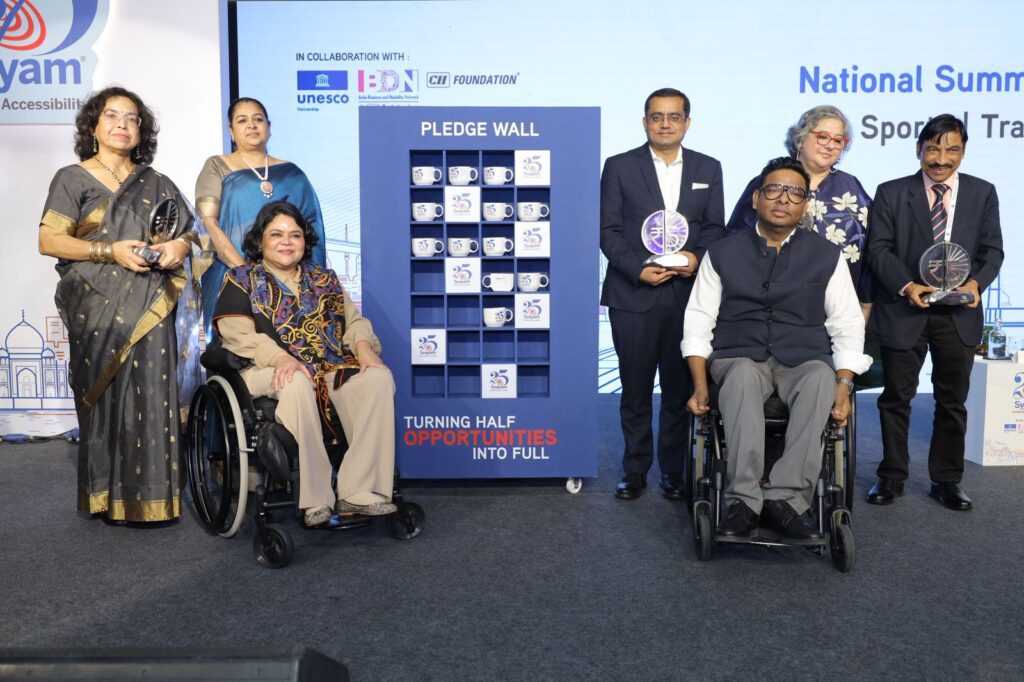
Making her inaugural address, Ms. Sminu Jindal, Founder & Chairperson, Svayam, said, “India faces an estimated loss of $1 trillion in its GDP owing to lack of accessibility inclusion in businesses, underscoring the need for accessibility to be viewed as not merely a social responsibility but a true economic imperative for the nation. The National Summit on Accessibility is critical in today’s times where the need to reframe the discourse is urgent and to move beyond welfare considerations in order to position accessibility as a catalyst for national economic growth. With targeted policy interventions and systemic improvements, accessibility has the potential to significantly enhance India’s GDP and overall productivity and it gives us at Svayam absolute pleasure in shaping a more inclusive India for all through this Summit.”
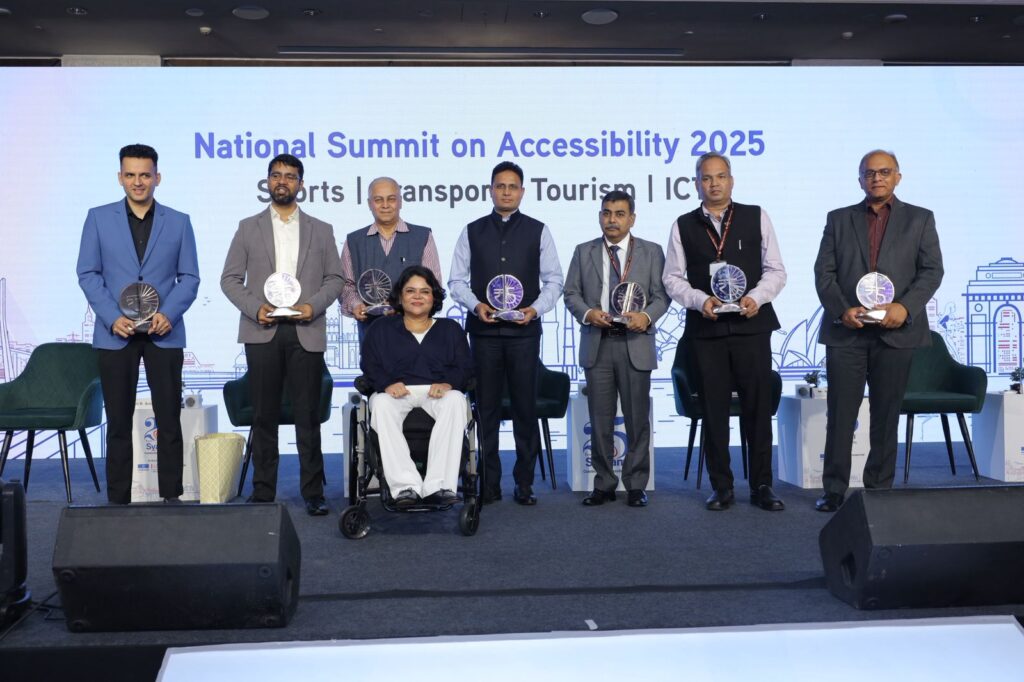
The inaugural Summit also featured addresses from Vice Admiral Krishna Swaminathan (AVSM, VSM), Mr. Tim Curtis, Director, UNESCO Regional Office for South Asia, and Mr. Shombi Sharp, UN Resident Coordinator in India, who collectively called for stronger institutional coordination to ensure accessibility becomes an economic and social priority.
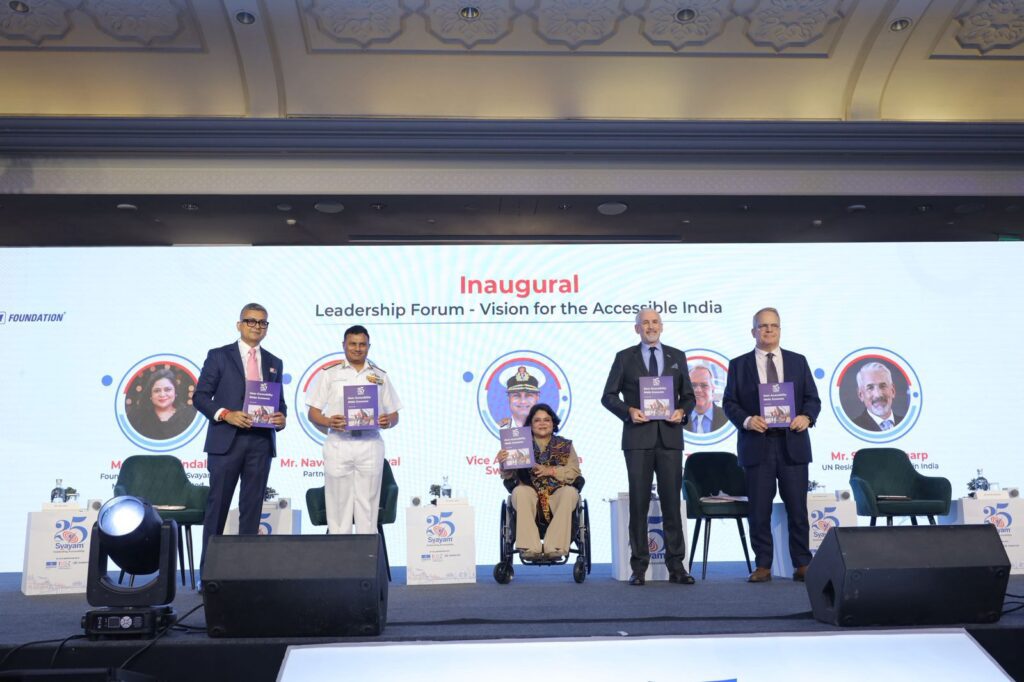
Speaking on the occasion Mr. Shombi Sharp, UN Resident Coordinator in India said, “Around the world today, one in six people experience a significant disability – that’s approximately 1.3 billion individuals. What is more, about 80 per cent of them live in developing countries. This tells us a very clear truth: disability needs to be reimagined as a natural part of the human condition. In the sporting realm, the International Charter of Physical Education, Physical Activity and Sport (revised by UNESCO in 2015) declares the practice of physical education, physical activity and sport as a fundamental right for all. When we build accessible sports facilities, inclusive tourism destinations, or universally designed heritage sites, we send a powerful message: everyone is welcome countries.”
Mr. Tim Curtis, Director, UNESCO Regional Office for South Asia further added,” Accessibility is not just about ramps or design standards, but about ensuring dignity, inclusion, and equal opportunity for all. When sport, tourism, and heritage become accessible, societies grow stronger, fairer and more resilient. India is uniquely positioned to lead globally in this space, embedding universal design across transport, sports, and tourism. We at UNESCO stand ready to partner with India and all its stakeholders in order to make accessibility the foundation of sustainable and inclusive development and not just an afterthought.“. A key highlight of the opening session was the release of a white paper by KPMG India, titled “Does Accessibility Make Economic Sense?”, which presents a framework for measuring the economic benefits of inclusive infrastructure and workforce participation.
As part of the Summit, four power-packed panels on integrating accessibility in sports infrastructure, tourism and culture, universal mobility and digital accessibility were organised during the day.
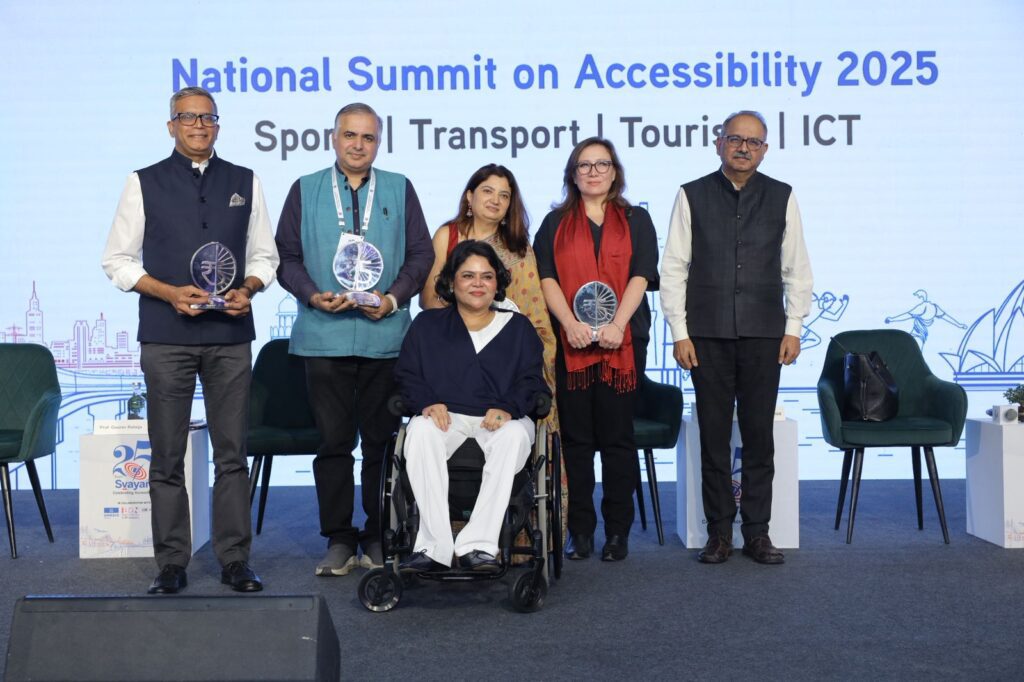
The first panel on ‘Accessible Games Blueprint: A Cross-Sectoral Planning Dialogue’, explored how India can create future ready spaces that empower every athlete and embrace every spectator, regardless of their ability with focus on designing and developing world-class stadiums, sports facilities, public spaces, and buildings that are not only state- of-the-art but also universally accessible. Moderated by Mr. Ayon Sengupta, Editor, Sportstar, panelists from the session included Vineel Krishna, IAS, Joint Secretary, Ministry of Youth Affairs and Sports Mr. I.R. Vala, Secretary, Sports Authority of Gujarat, Ms. Ekta Bhyan, Para Athlete and Mr. Manish Gulati, Architect, MOFA.
The second panel on ‘Tourism & Culture Accessibility for All: Advancing Inclusive Travel Ecosystems Towards 2030’ focused on what it takes to make India’s diverse tourist destinations, heritage sites, cultural festivals, religious places, and adventure zones accessible for all travellers, highlighting inclusive hospitality, accessible tourism, and improving guest experiences, while preparing India to welcome global visitors for the mega sporting events. Moderated byJournalist, Author, and Film Critic, Ms. Kaveree Bamzai, the panel included distinguished dignitaries like Mugdha Sinha, MD, ITDC, Dr. Nandini Bhattacharya Sahu, Mr. Arman Ali, Executive Director, NCPEDP, Mr. Vikram Sharma, Cluster Director of Human Resources, Marriott International and Mr. K. K. Muhammed, Formal Regional Director (North) of the Archaeological Survey of India (ASI).
The third panel on ‘From Barriers to Bridges: Driving Universal Mobility toward 2047’ examined the way in which the mobility gap can be bridged by integrating accessibility into India’s transport network, including rail, metro, air, and last-mile services and reimagine cities through inclusive planning, making journeys seamless and travel hubs barrier-free, while also ensuring tourist circuits, heritage sites, and cultural destinations are connected and accessible—promoting independence, dignity, and ease for every traveller.
Moderated by Mr. Vineet Malhotra, Senior Consulting Editor – News X, the panel included distinguished dignitaries like Mr. Jitender Yadav IAS, Managing Director, Delhi Transport Corporation, Mr. Pranav Mallick, ED, (Transformation), Railway Board, SM Sharma, ED (Coaching), Railway Board, Shri R. Srinivas, Hony. Secretary, Institute of Urban Transport (India) Former Town & Country Planner, TCPO/ MoHUA and Visiting Faculty, School of Planning & Architecture.
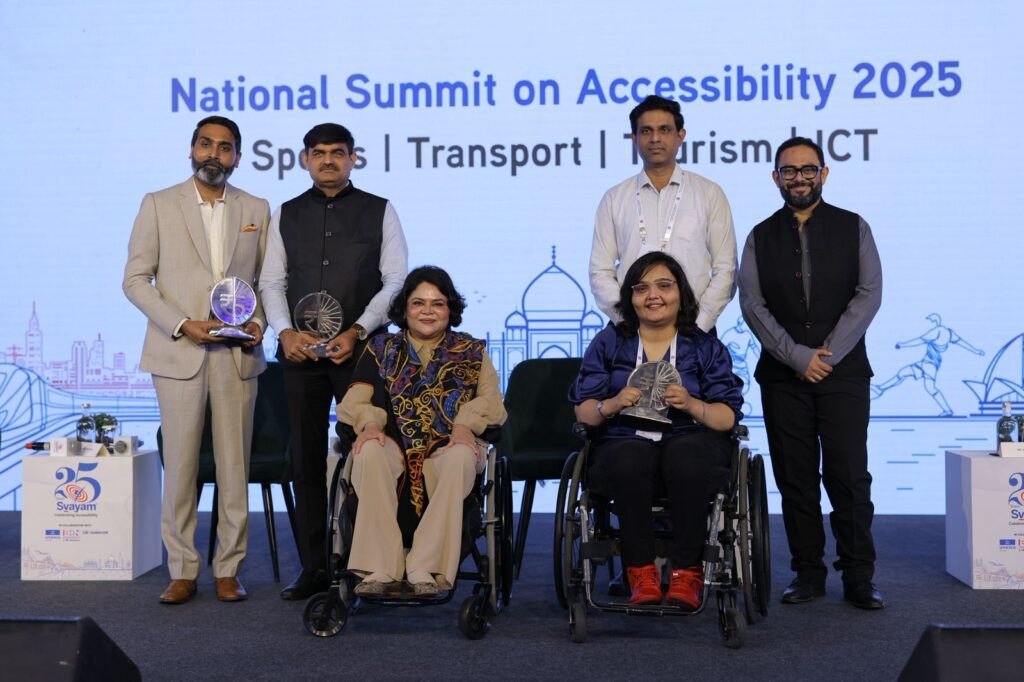
The last panel on ‘Bridging the Digital Divide – Accessibility in ICT & Digital Ecosystems (ICT)’ led by Shri Prashant Kumar Mittal, Deputy Director General, National Informatics Center (NIC) in the keynote session explored the way in which digital platforms, including those for government, private, and event-related purposes, can be made fully accessible through inclusive design, AI, multilingual interfaces, and accessible ticketing and engagement for global sporting and tourism events.
Moderated by Mr. Gaurav Choudhury – Consulting Editor CNBC TV18 and Founder and CEO, Earshot Digimedia, the panel included distinguished dignitaries like Ms. Shilpi Kapoor, Founder, Barrier Break, Ms. Ma’aly Hazzaz, Regional Advisor, Chief of Communication and Information Sector, UNESCO Regional Office for South Asia, Prof. P V Madhusudhan Rao, Department of Design & Department of Mechanical Engineering, IIT and Prof. Gaurav Raheja, Department of Architecture and Planning at the Indian Institute of Technology (IIT) Roorkee.
The Summit concluded with consensus on creating a national roadmap for accessibility aligned with India’s vision of Viksit Bharat @2047, reaffirming that inclusion must remain a shared national priority.
About Svayam
Svayam is a leading accessibility organization that aims to reform infrastructure and transportation to make it accessible for people with reduced mobility. Accessibility aids individuals and gives them the freedom to independently explore the built environment around them, irrespective of their physical capabilities. This was on philanthropist-business visionary Sminu Jindal’s mind when she founded Svayam in October 2000. An initiative of the Sminu Jindal Charitable Trust, Svayam is a not-for-profit accessibility pioneer that focuses on creating a barrier-free world for all.
